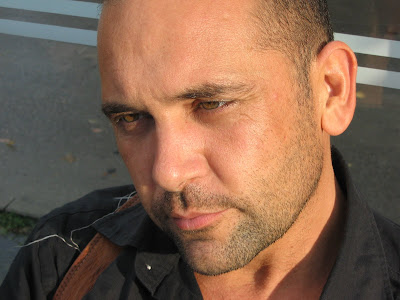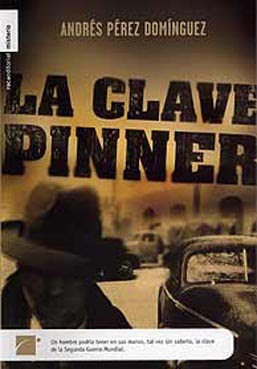Argentina's largest The insistent "I think the truth is perfect for math, chemistry, philosophy, but not
for life. In life, illusion, imagination, desire, hope have more. "
One of the great authors of Latin American literature, Ernesto Sabato, died at his home at age 99 in the early hours of last April 30 because of bronchitis. The Argentine writer, Cervantes Prize in 1984, began professional life as a physicist and then switched to literature.
His work has been internationally acclaimed with many other awards and widespread in numerous translations. Sabato is considered one of the most important writers in English of all time.
His life was marked by significant events. Fighter for the preservation of Human Rights, held a strong commitment against military dictatorship was established in Argentina between 1976 and 1983. So, with the advent of democracy was part of the National Commission on Disappeared People (CONADEP), an institution that investigated the disappearances of people during the dictatorship and the existence of illegal detention and torture. That activity was the text
Report Sabato.
victim of a severe depression that lasted a long time, Sabato later years were spent confined to his home. And did not write, but was still painting, his second passion. Not defending the communist ideals of his youth and declared itself to be closer to something he called "anarcho-Christianity." Sabato
novelist and essayist
author of numerous writings on the human condition, Sabato makes a long work in which the novels stand
The tunnels l, On Heroes and Tombs
- who confirmed as a English-language original author - and
Abaddon, the destroyer .
The tunnel is a psychological novel about the motivations of murder committed against Maria Iribarne by a painter, Juan Pablo Castel. Sábato intended to write a novel philosophical foundation in fact, among its pages, he developed his metaphysical view of existentialism.
The tunnel, however, is no mere ideological reflection, the plot went beyond the original intentions of Sabato and became an intense story of jealousy, passion and despair.
 On Heroes and Tombs
On Heroes and Tombs is considered by many the greatest novel of the twentieth century Argentina. Weaves various arguments as Argentina's history, the life of a family originally from the rancid aristocratic Creole tormented relationship of Martin and Alejandra, a brutal incest, and a plot led by a secret organization of blind, from which the author reflects on the idea of \u200b\u200bduality: heaven and hell, beauty and horror.
At the time of its publication, the book provoked much criticism, even branded as racist as suggesting that we learn the horror and tragedy that we can draw from the beauty. According to the author, this apparent paradox leads us to understand each other better as human beings and condemned.
Abaddon, the destroyer , 1974, is his latest novel. It establishes a connection with his earlier novels, especially
On Heroes and Tombs. It consists of a fragmented narrative that mixes autobiographical events truthful and fantastic. Includes events in Argentina's history, the Second World War, Hiroshima and the Vietnam War.
Ernesto Sabato has also come for the history as a major essayist of his time, not only by the amount released but also the quality and variety of topics.
In 1952, the beginning of his literary life, wrote
Heteredoxia , a trial that brings to the fore the woman, he regarded the innate character of humanist culture.
His first trial, and the universe
One was published in 1945 and brings together political and philosophical articles. And as good Argentine Tango wrote
, discussion and password (1963), a compendium of information and opinions about the tango and world.
reflections, doubts and theories about the search for a novelist throughout his creative themes were also treated in
Sabato and his ghost writer (1963) and
Books and mission in the release Latin America (1979).
published in 2000 his last essay,
resistance, a philosophical conception of man and globalization in spreading its deepest experiences about the moral degradation of human beings in the context of a society without values, and ensures "only hope will make us free." From then devoted himself exclusively to painting since by prescription had been forbidden to write and read.
As if anticipating this, in 1998 published
Before the End, considered his literary testament, he spoke about the end times and his own end. This essay chronicles his life, leaving a strong message of hope to youth.
Sabato has been longevity in life and in writing. Its basic stylistic features are brilliant exposition, introspection, psychological and rhetorical bombast. Their longevity has allowed vital exercise intensely moral commitment: rather than a writer, he represents the ethical conscience of his time. And that commitment to defending the dignity will always be an invaluable guide for all those who defend the human right to be free and respected.
Therefore, we feel that Ernesto Sabato is the biggest, best, of Argentina.
Fighter for human dignity
For his honesty and critical thinking, Ernesto Sabato was elected President of the National Commission on Disappeared People (CONADEP), established by President Raul Alfonsin of Argentina in 1983 with the challenge of investigating violations of Human Rights during the military dictatorship in power between 1976 and 1983.
were collected more than 50,000 pages of documents that revealed thousands of cases of abductions, disappearances, torture and executions, and clarified that the abuses resulted in the deaths of more than 30,000 people. Each case was analyzed, documented and filed separately.
Nevermore. National Commission report on the disappearance of people , published in an official report in 1984, is a summary of the tasks of the Commission. A Sabato, in addition to coordination of the Commission, he commissioned the prologue
Report .
Sabato says in the document: "With sadness, with sorrow we have fulfilled the mission entrusted to us at the time the Constitutional President of the Republic. That was very hard work because we had to piece together a dark puzzle, after many years produced the facts, when deliberately erased all traces, all documentation has been burned and even buildings have been demolished. We had to rely, therefore, in reports of family members, in the statements of those who could get out of hell and even repressors in the testimonies of dark motives that approached us to say what they knew. "
And concludes: "The great calamities are always instructive, and certainly the most terrible tragedy in its history that the nation suffered during the military dictatorship that lasted launched in March 1976 will help us understand that only democracy can save a village horror, that only she can keep and save the sacred and essential rights of the human creature. Only then can we be sure that our country never again be repeated facts that we have made tragically famous in the civilized world. "
Report Sabato is engraved in the minds of the Argentines because in it the writer identify those responsible for crimes committed, that as a result were convicted and sent to jail.
Brazil Never Again A similar project was developed in Brazil, from August 1979 to March 1985, coordinated by the São Paulo Archiodiócesis, and resulted in the book Brasil Nunca Mais , whose goal was to reveal the dark reality kept secret in the basement of the Brazilian dictatorship that will never be repeat violence and persecutions of the time. Under the leadership of Cardinal-Archbishop D. Paulo Evaristo Arns, the report contains the repression by the military regime from documents produced by the authorities. Gathered copies of almost all political processes judged by the Brazilian Military Justice from April 1964 to March 1979, especially in the Superior Tribunal Militar (STM). were obtained in various ways, copies of 707 full process and dozens of other incomplete, um totaling over a million pages microfilmed immediately in two ways, so that one could be saved without risks abroad.





















 This weekend has been one of those. After exactly one year ago tomorrow I started writing my latest novel, and rolled up to the elbows with the last chapter that I am, if there is a catastrophe by
This weekend has been one of those. After exactly one year ago tomorrow I started writing my latest novel, and rolled up to the elbows with the last chapter that I am, if there is a catastrophe by 












